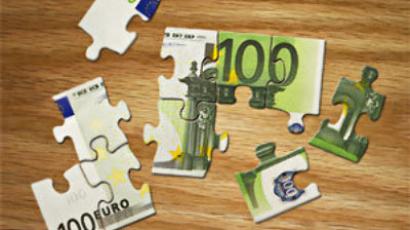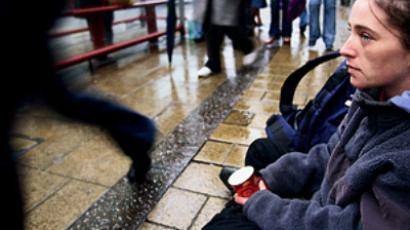Crisis-shaken Hungary hungry for help
The economic slowdown continues to rumble on and some Eastern European economies like Hungary have found themselves in a very vulnerable position.
Twenty years ago Rovid Sandorne began selling fruit from her small stall – the same year the Berlin wall came down and when hopes for a free-market utopia began to rise.
Yet the very year that marks two decades since the wall was torn down, another structure has also crumbled: the economy.
Rovid is one of millions across Eastern Europe who are feeling the brunt of the economic crisis, which has sparked riots and even brought down a government.
The promise that democracy, a free-market, and joining the EU would bring stability now seems empty to people like Rovid, who are wondering how bad it will get in her country.
“The costs are so high that the money that is left for me is less and less,” she said.
Hungary is one of the worst hit in the former Soviet bloc, and many say they fear the worst is yet to come.
A lot of Hungarians took out loans in foreign currencies when interest rates were low. Some payments have gone up by 20% after the local currency tumbled on the world market.
“The Hungarian economy became very vulnerable to financing possibilities, and under these circumstances in the global economy it was very dangerous, and it is very dangerous even now,” said economist Eva Palocz.
Just when people needed more money to pay higher interest rates the recession worsened, prices went up, unemployment grew and people stopped spending.
For years many Eastern European countries spent much more than their economies were making and now they are paying the price.
Like many of its neighbours, Hungary is not only facing an economic crisis but also a political one. Several protests have been held, calling for Prime Minister Ferenc Gyurcsány and his government to resign.
Some anticipate early elections could be held, making an already shaky situation worse, even chaotic.
Hungary is desperate for help. It is not clear where and when it will come from, and that has some thinking back to better times, instead of waiting for what the future holds.













